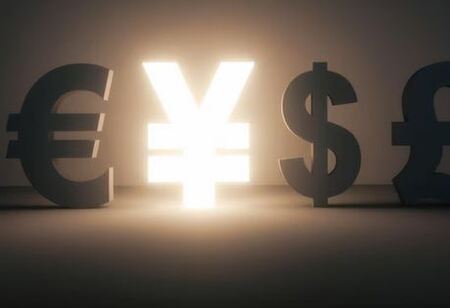
Yen Firms as Anvestors Gird for Political Uncertainty

 The yen appreciated on Monday after Japan's ruling coalition lost its majority in the upper house, as investors prepared for a potential period of policy inaction and market unrest in the world's fourth-largest economy ahead of a deadline for tariff talks with the US.
The yen appreciated on Monday after Japan's ruling coalition lost its majority in the upper house, as investors prepared for a potential period of policy inaction and market unrest in the world's fourth-largest economy ahead of a deadline for tariff talks with the US.
With Japanese markets closed for the day, the yen acted as a gauge of investor anxiety, and early trading indicated that the election outcomes were largely anticipated by the market.
The yen rose to 148.46 per dollar but remained near the 3-1/2-month low it reached the previous week as investors expressed concerns over Japan's fiscal prospects. It also increased slightly against the euro to 172.64 and against the pound to 199.03.
Prime Minister Shigeru Ishiba's Liberal Democratic Party secured 47 seats, falling short of the 50 seats required to retain a majority in the 248-seat upper house during an election where half of the seats were contested.
Although the election results do not directly threaten Ishiba's administration, they increase the political pressure on the beleaguered leader, who previously lost control of the more influential lower house in October.
Also Read: 5 Business Leaders Who Rescued a Dying Business
Carol Kong, a currency strategist at Commonwealth Bank of Australia, suggested that markets had already factored in a considerably worse scenario for the ruling coalition before the election and were skeptical about the yen's ability to maintain its strength.
The election outcome, while not entirely unexpected for markets, coincides with a challenging period for Japan as it seeks to finalize a tariff agreement with US President Donald Trump ahead of an August 1 deadline.
Last week, Japanese government bonds (JGBs) experienced a significant drop, resulting in 30-year bond yields reaching a record high, while the yen fell to multi-month lows against both the US dollar and the euro.
Should Ishiba step down, the ensuing political turmoil might prompt foreign investors to withdraw from Japanese stocks and the yen, analysts have cautioned.
Investor attention has remained firmly on Trump's global tariff initiatives, with a recent Financial Times report indicating that the US president was advocating for substantial new tariffs on products from the European Union.
U.S. Commerce Secretary Howard Lutnick expressed confidence that a trade agreement with the European Union could be reached, but he emphasized that August 1 is a strict deadline for the imposition of tariffs.
The euro declined by 0.12 percent to $1.16165, while the pound last traded at $1.13417. The dollar index, which evaluates the US currency against six others, stood at 98.352.
The European Central Bank is scheduled to convene this week and is anticipated to keep its interest rates unchanged following a series of cuts, while investors are focused on whether the Federal Reserve will bow to Trump's pressure to lower interest rates.
Also Read: 5 Management Habits of CFOs
Last week, Trump appeared to be on the verge of attempting to dismiss Fed Chair Jerome Powell but ultimately retreated, acknowledging the potential market turmoil that could ensue. The US central bank is largely expected to maintain its current interest rates during its July meeting.

